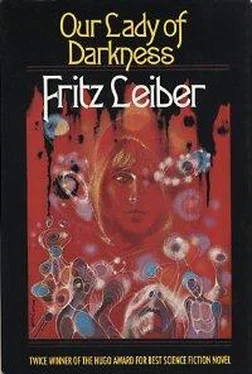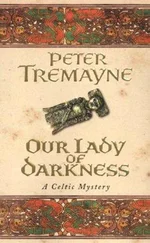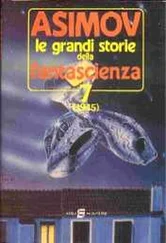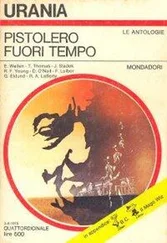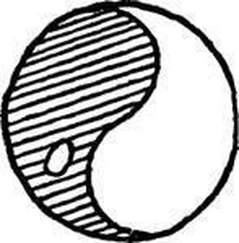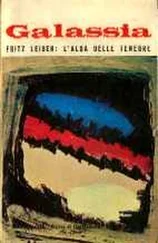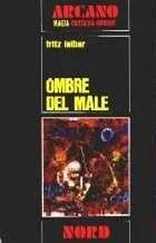He heard the elevator stop outside and its doors open, but didn’t hear it going off again. He waited tautly, but there was no knock at his door, no footsteps in the hall that he could hear. There came from somewhere through the wall the faint jar of a stubborn door being quietly opened or closed, then nothing more of that.
He touched The Spider Glyph in Time where it was lying just below the directory. Earlier in the day his Scholar’s Mistress had been lying on her face, but now on her back. He mused a moment (What had Lettland said?) as to why the exterior female genitalia were thought of as a spider. The tendriled blot of hair? The mouth that opened vertically like a spider’s jaws instead of horizontally like the human face’s lips or the labia of the Chinagirls of sailors’ legendry? Old fever-racked Santos-Lobos suggested it involved the time to spin a web, the spider’s clock. And what a charming cranny for a cobweb.
His feather-touching fingers moved on to Knochenmädchen in Peize (Mit Peitsche) —more of the dark hairiness, now changing to soft fur (furs rather) wrapping the skeleton girls—and Ames et Fantômes de Douleur , the other thigh; de Sade (or his posthumous counterfeiter), tiring of the flesh, had really wanted to make the mind scream and the angels sob; shouldn’t The Ghosts of Pain be The Agonies of Ghosts?
That book, taken along with Masoch’s Skeleton Girls in Furs (With Whips) , made him think of what a wealth of death was here under his questing hands. Lovecraft dying quite swiftly in 1937, writing determinedly until the end, taking notes on his last sensations. (Did he see paramentals then?) Smith going more slowly some quarter-century later, his brain nibbled by little strokes. Santos-Lobos burned by his fevers to a thinking cinder. And was vanished Lettland dead? Montague there (his White Tape made a knee, only its paper was getting yellow) drowning by emphysema while he still wrote footnotes upon our self-suffocating culture.
Death and the fear of death! Franz recalled how deeply Lovecraft’s “The Color Out of Space” had depressed him when he’d read it in his teens—the New England farmer and his family rotting away alive, poisoned by radioactives from the ends of the universe. Yet at the same time it had been so fascinating. What was the whole literature of supernatural horror but an essay to make death itself exciting?—wonder and strangeness to life’s very end. But even as he thought that, he realized how tired he was. Tired, depressed, and morbid—the unpleasant aspects of his evening mind, the dark side of its coin.
And speaking of darkness, where did Our Lady of Same fit in? ( Suspiria de Profundis made the other knee and De Profundis a calf. “How do you feel about Lord Alfred Douglas, my dear? Does he turn you on? I think Oscar was much too good for him.”) Was the TV tower out there in the night her statue?—it was tall enough and turreted. Was night her ‘treble veil of crape?’ and the nineteen reds, winking or steady, ‘the fierce light of a blazing misery?’ Well, he was miserable enough himself for two. Make her laugh at that. Come, sweet night, and pall me.
He finished tucking in his Scholar’s Mistress—Prof. Nostig’s The Subliminal Occult (“You disposed of Kirlian photography, doctor, but could you do as well with the paranatural?”), the copies of Gnostica (any relation to Prof. Nostig?), The Mauritzius Case (did Etzel Andergast see paramentals in Berlin? and Waramme smokier ones in Chicago?), Hecate, or the Future of Witchcraft by Yeats (“Why did you have that book destroyed, William Butler?”), and Journey to the End of the Night (“And to your toes, my dear.”)—and wearily stretched himself out beside her, still stubbornly watchful for the tiniest suspicious sounds and sights. It occurred to him how he had come home to her at night as to a real wife or woman, to be relaxed and comforted after all the tensions, trials, and dangers (Remember they were still there!) of the day.
It occurred to him that he could probably still catch the Brandenburg Fifth if he sprang up and hurried, but he was too inert even to stir—to do anything except stay awake and on guard until Cal and Gun and Saul returned.
The shaded light at the head of his bed fluctuated a little, dimming, then brightening sharply, then dimming again as if the bulb were getting very old, but he was much too weary to get up and replace it or even just turn on another light. Besides, he didn’t want his window too brightly lit for something on Corona Heights (Might still be there instead of here. Who knew?) to see.
He noted a faint, pale gray glitter around the edges of the casement window—the westering gibbous moon at last beginning to peer in from above, swing past the southern high rise into full view. He felt the impulse to get up and take a last look at the TV tower, say good night to his slender thousand-foot goddess attended by moon and stars, put her to bed, too, as it were, say his last prayers, but the same weariness prevented him. Also, he didn’t want to show himself to Corona Heights or look upon the dark blotch of that place ever again.
The light at the head of his bed shone steadily, but it did seem a shade dimmer than it had been before the fluctuation, or was that just the pall cast by his evening mind?
Forget that now. Forget it all. The world was a rotten place. This city was a mess with its gimcrack high rises and trumpery skyscrapers— Towers of Treason indeed. It had all tumbled down and burned in 1906 (at least everything around this building had) and soon enough would again, and all of the papers be fed to the document-shredding machines, with or without the help of paramentals. (And was not humped, umber Corona Heights even now stirring?) And the entire world was just as bad; it was perishing of pollution, drowning and suffocating in chemical and atomic poisons, detergents and insecticides, industrial effluvia, smog, the stench of sulfuric acid, the quantities of steel, cement, aluminum ever bright, eternal plastics, omnipresent paper, gas and electron floods—electro-mephitic city-stuff indeed! though the world hardly needed the paranatural to do it to death. It was blackly cancerous, like Lovecraft’s farm family slain by strange radioactives come by meteor from the end of nowhere.
But that was not the end. (He edged a little closer to his Scholar’s Mistress.) The electro-mephitic sickness was spreading, had spread (had metastasized) from this world to everywhere. The universe was terminally diseased; it would die thermodynamically. Even the stars were infected. Who thought that those bright points of light meant anything? What were they but a swarm of phosphorescent fruit flies momentarily frozen in an utterly random pattern around a garbage planet?
He tried his best to “hear” the Brandenburg Fifth that Cal was playing, the vastly varied, infinitely ordered diamond streamers of quill-plucked sound that made it the parent of all piano concertos. Music has the power to release things, Cal had said, to make them fly. Perhaps it would break this mood. Papageno’s bells were magic—and a protection against magic. But all was silence.
What was the use of life anyhow? He had laboriously recovered from his alcoholism only to face the Noseless One once more in a new triangular mask. Effort wasted, he told himself. In fact, he would have reached out and taken a bitter, stinging drink from the square bottle, except he was too tired to make the effort. He was an old fool to think Cal cared for him, as much a fool as Byers with his camp Chinese swinger and his teen-agers, his kinky paradise of sexy, slim-fingered, groping cherubs.
Franz’s gaze wandered to Daisy’s painted, dark-nested face upon the wall, narrowed by perspective to slit eyes and a mouth that sneered above a tapering chin.
Читать дальше
